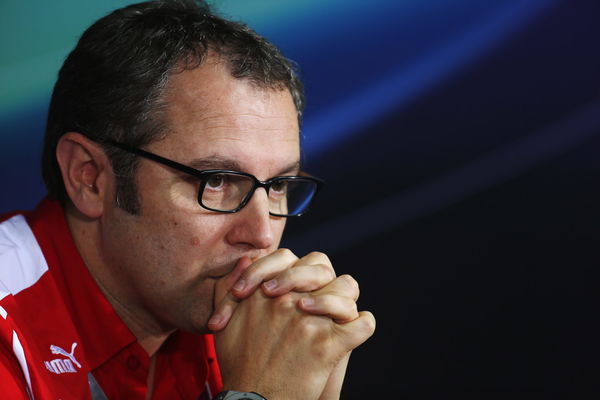
via Getty
NOIDA, INDIA – OCTOBER 26: Ferrari Team Principal Stefano Domenicali attends the official press conference following practice for the Indian Formula One Grand Prix at Buddh International Circuit on October 26, 2012 in Noida, India. (Photo by Mark Thompson/Getty Images)

via Getty
NOIDA, INDIA – OCTOBER 26: Ferrari Team Principal Stefano Domenicali attends the official press conference following practice for the Indian Formula One Grand Prix at Buddh International Circuit on October 26, 2012 in Noida, India. (Photo by Mark Thompson/Getty Images)
Hardly months after F1 lost one of their own, Martin Shepherd, in a motorcycle accident, another tragedy has struck the paddock; this time, it’s the highly distinguished engineer, Antonia Terzi, who is well known for her ‘Walrus-Nose’ innovation in Williams.
And quite similar to Shephard, Antonia, at the age of 50, lost her life in a road accident, a car crash in the United Kingdom. It is indeed quite painful to watch one’s life being taken away at such a young age.
Hence, mourning her death, Formula 1 CEO Stefano Domenicali released a statement on social media. The Italian wrote, “I am deeply saddened to hear that our friend Antonia has been taken from us far too young.
ADVERTISEMENT
Article continues below this ad
Stefano Domenicali:
I am deeply saddened to hear that our friend Antonia has been taken from us far too young. She was an incredibly gifted and talented person who loved what she did and gave everything 100%. My thoughts are with her family and friends at this very sad time. pic.twitter.com/JxhcIq4ohd
— F1 Media (@F1Media) November 2, 2021
“She was an incredibly gifted and talented person who loved what she did and gave everything 100%. My thoughts are with her family and friends at this very sad time.”
Antonia retired from Formula 1 back in 2004 after Michael Schumacher lifted his seventh and final world championship title. She then took up the role of the head of aerodynamics at Bentley followed by an assistant professor at the Delft University of Technology in the Netherlands.
Antonia’s work in F1
The name ‘Antonia’ was quite buzzing back in the early 2000s, solely for her influence in Williams’ bizarre yet effective front wing design. In 2004, she introduced the ‘walrus nose’ in a bid to reduce drag and subsequently increase downforce, and it worked like a charm.
Unfortunately, the timing wasn’t right, as Ferrari, at that time, were in a blazing form with Schumacher. The German won 13 out of 18 races that season. But Williams did end that season on a high, as Pablo Montoya won the Brazilian Grand Prix.
Hence, hearing about her death, Williams paid tribute to her through a tweet. “We are deeply saddened to learn of the passing of our former colleague and chief aerodynamicist, Antonia Terzi. Our thoughts go out to Antonia’s friends and family at this difficult time,” Williams wrote.
ADVERTISEMENT
Article continues below this ad
We are deeply saddened to learn of the passing of our former colleague and chief aerodynamicist, Antonia Terzi.
Our thoughts go out to Antonia's friends and family at this difficult time. pic.twitter.com/lgrhmanuQm
— Williams Racing (@WilliamsRacing) November 1, 2021
Prior to Williams, Antonia also worked for Ferrari in 2001 and 2002, as she watched Schumacher clinch the title over both seasons. All in all, an amazing talent who used her brief F1 stint to the fullest advantage.
ADVERTISEMENT
Article continues below this ad
It is never easy for an engineer to garner attention, especially with the limelight constantly following the drivers. But Antonia broke that barrier as the paddock now bids adieu to her, hailing her as nothing but a hero.
Watch Story: How Much Does an F1 Car Cost?
ADVERTISEMENT
ADVERTISEMENT
ADVERTISEMENT
ADVERTISEMENT

